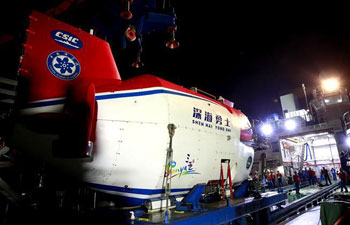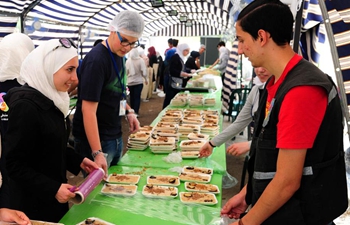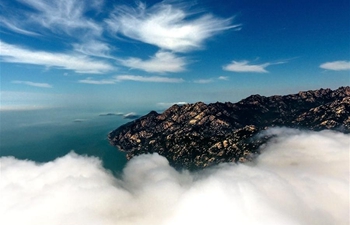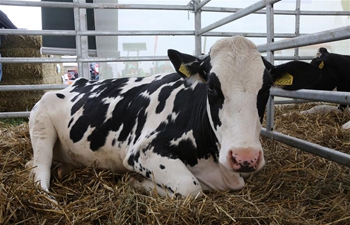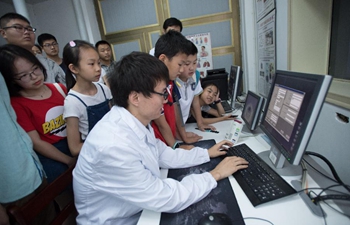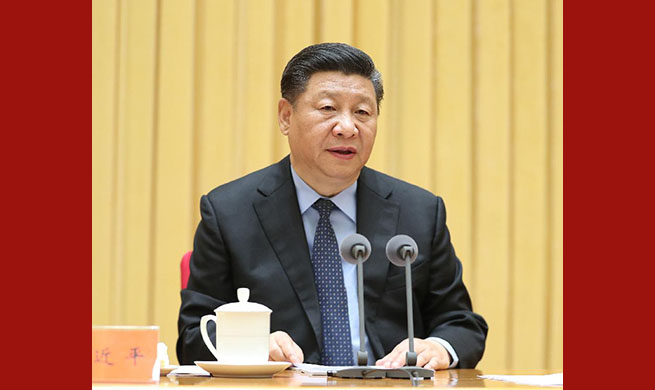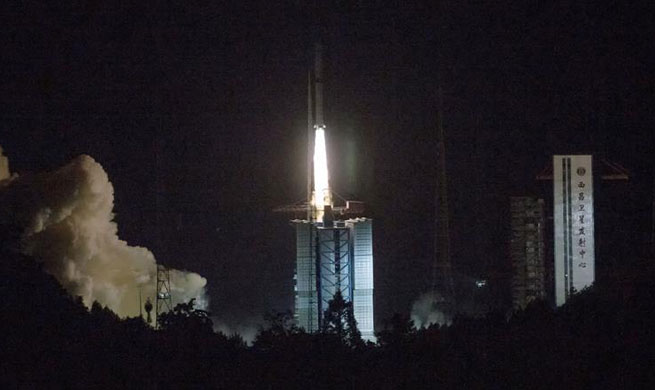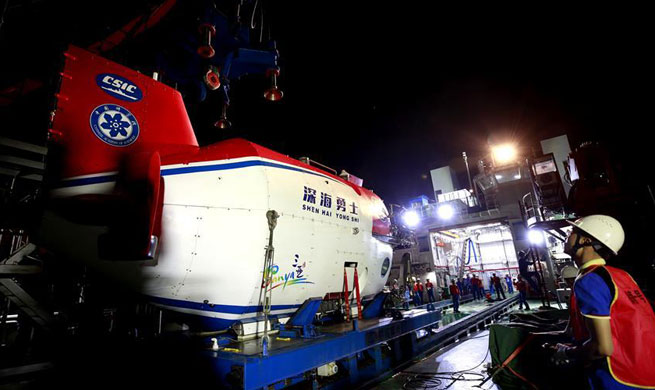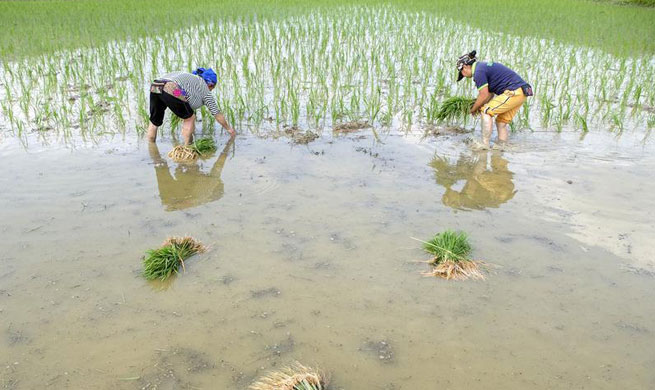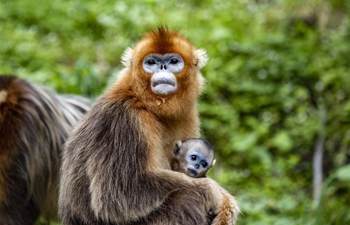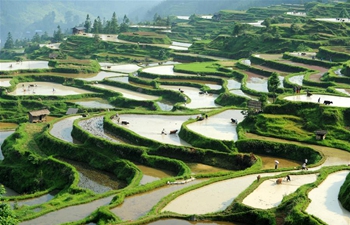HOHHOT, May 21 (Xinhua) -- Every morning, Huhtuyaa is woken up by his roosters' crowing, but he was not so comfortable with the sound 13 years ago when his family abandoned grazing and started to raise chickens.
"I grew up hearing sheep and cows, and it felt strange to hear chickens in the beginning," said the resident of Sainhoda Township, deep in the Hunshandake Sandland, in the north of Inner Mongolia Autonomous Region.
In early summer, Hunshandake turns green, but 20 years ago, 80 percent of the area was sand dunes.
Hunshandake means "yellow wild horse" in Mongolian. The sandland was believed to be a major source of the severe sandstorms that would often shroud northern China.
In 2002, China started a sand control project in the Beijing-Tianjin-Hebei area. A series of environmental restoration efforts were undertaken in Hunshandake, with one of them being encouraging herders to raise chickens.
Scientists at the Hunshandake environmental research station under the Chinese Academy of Sciences brought some chickens to the sandland, persuading the herders to give up grazing.
However, most of the herders refused to change their traditional way of living.
Huhtuyaa's family took the daring step.
With low interest loans given by the government, Huhtuyaa's parents bought around 400 chicks in 2005. Afraid that there might be no market for their chickens, they traveled to Hebei Province and Beijing from time to time, looking for potential clients.
Huhtuyaa joined his parents in raising chickens after graduating from high school in 2007.
Over the years, the family's land grew ever greener. The grass seeds and worms became delicacies for chickens. Their manure worked as the fertilizer of the grass. A virtuous cycle was formed.
Every morning, Huhtuyaa takes a leisurely walk on the grassland before starting his work.
His pockets have also become fuller thanks to the growing market demand for chickens.
Two years ago, the family invested over 6 million yuan (940,910 U.S. dollars) and opened a eco-tourism business. Every year, they sell about 8,000 chickens and 290,000 eggs, and can make as much as 1 million yuan.
The farm has also become a tourist attraction for people from the cities. Visitors can enjoy the grassland scenery as well as freshly-cooked chicken and eggs.
Huhtuyaa's success has attracted the attention of many of his neighbors. He plans to give 30 to 50 chicks to his fellow villagers, and buy the chicken back for sale after they have grown.




